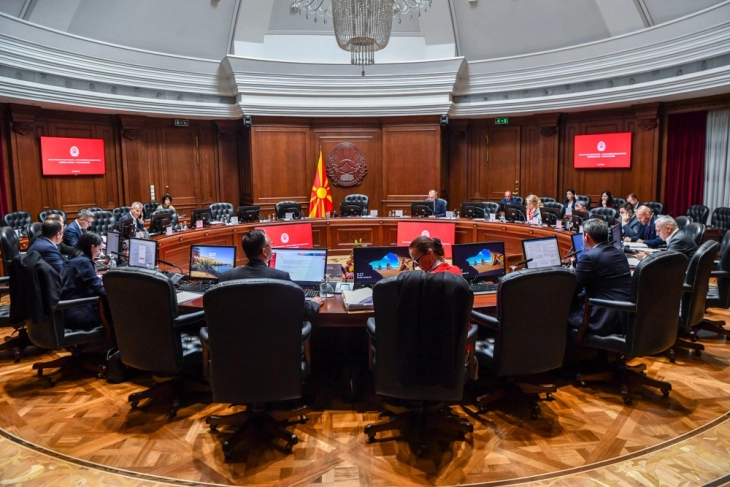Government to discuss 2023 draft budget

Skopje, 2 November 2023 (MIA) – The Government is set to discuss North Macedonia’s 2023 draft budget at its 98th session on Wednesday.
In an op-ed last month, Finance Minister Fatmir Besimi said budget deficit will continue reducing in the 2023 budget as well, and implementation of gradual fiscal consolidation continues third year in a row already following the onset of the COVID-19 induced crisis.
Besimi noted that prior debts falling due in 2023 on the basis of principal alone amount to around EUR 800 million, EUR 450 million out of which on the basis of the Eurobond issued in 2016. Interest falling due next year amounts to around EUR 240 million, or both debt and interest falling due exceed billion euros
“Still, taking into account all measures planned for the fiscal consolidation, we remain on the path to gradual reduction of the deficit. In line with next year’s Budget, fiscal deficit gradually narrows so as to respond to the medium-term targets. Next year’s budget deficit is expected to decline in relation to this year, hence we continue reducing the deficit third year in a row already following 2020, i.e. after the COVID-19 crisis,” said Besimi.
On the medium term, the Minister pointed out, several barriers remain to be overcome in terms of financing the arrears, above all those accumulated during the COVID-19 crisis. However, he adds, with a moderate approach and a mix of savings and conducting adequate policies to stimulate growth and increase revenues, we will surmount them as well.
Besimi emphasized the implementation of gradual fiscal consolidation, which is to underpin the economic growth. According to him, mixed measures include improved budget revenue collection by enhancing the administrative capacities and improving the services of Public Revenue Office and the Customs Administration, measures aimed at reducing the grey economy and tax reform, reducing and restructuring budget expenditures, reducing the current expenditures, greater support to the private sector, support to innovations and boosted competitiveness, revision of methodologies for transfers and subsidies and changes in the sources of financing the budget deficit, rescheduling the public debt, greater diversification of the sources of financing the deficit, as well as financing and implementing certain projects through public-private partnerships, Development Fund for Strategic Investments and mobilization of financial capital from the international financial institutions and the private sector.







